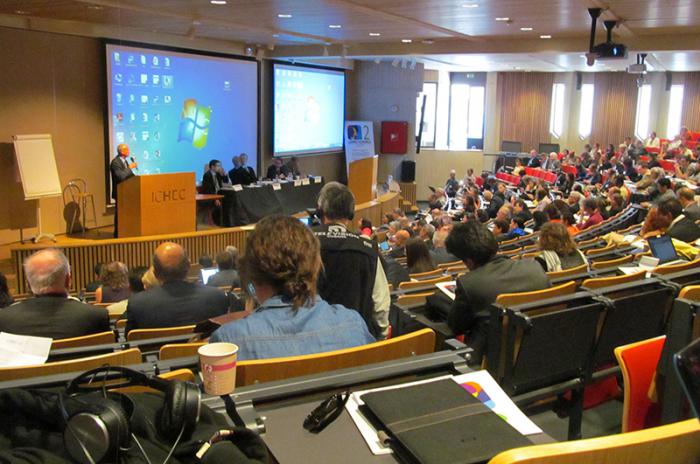
Brussles.—The 2nd CELAC-EU Academic Summit came to a close with the mandate to expand and deepen cooperation in higher education, science, technology and innovation.
The meeting, held June 8-9, prior to the 2nd Summit of the Community of Latin American and Caribbean States (CELAC) and the European Union, encouraged joint efforts to advance and define initiatives in higher education.
In this context, Cuba’s participants in the event called for stronger cooperation between universities of CELAC and EU member countries.
“We want to go beyond theory to practice, and identify further projects in areas of mutual interest,” the Rector of the University of Camagüey, Santiago Lajes Choy, explained during the event.
The Rector of the Agrarian University of Havana, María Irene Balbín, referred to opportunities emerging from this forum to promote cooperation in higher education, professional training, research and technological innovation. Roberto Escalante, general secretary of the Union of Universities of Latin America and the Caribbean, commented that the two regions have differing realities, but there are areas of common interest, such as the fight against climate change and for food security.
The Academic Summit pushed for efforts, within the academic communities of the two regions, to advance and implement proposals generated at the previous summit held in January 2013, in Santiago de Chile.
In the framework set out in the Chilean capital, four areas of thematic analysis are proposed, among them the strengthening of bi-regional integration of higher education systems, including subtopics such as universal values and cultural diversity. Another area is the promotion of bi-regional integration in scientific research, technological and innovation systems, focusing on the university as a promoter of innovation and creativity, with the objective of sustainable development.
Bi-regional cooperation among higher education institutions and their relations with society, especially the productive sector, innovation and intellectual property rights, constitute other focuses. Also highlighted are the use of technology in facilitating and development and the social role of universities in the 21st century.
Similarly, links between the academic community and public policy, including aspects such as education for social inclusion, preschool and pre-university education, teacher training and lifelong learning.
The results of the discussions were presented to the heads of state and government participating in the CELAC-EU Summit through a document containing ideas and proposals from the academic community, with the view of advancing toward this common space and defining the bi-regional strategic partnership.
This week, Brussels is host to the Latin American and Caribbean region, together with the EU, who aim to give fresh impetus to relations within a very different context to that of 15 years ago.
Some 40 heads of state and government, and high-level delegations from 61 countries participated in the Summit, held at the Justus Lipsius complex, home to the European Council.








